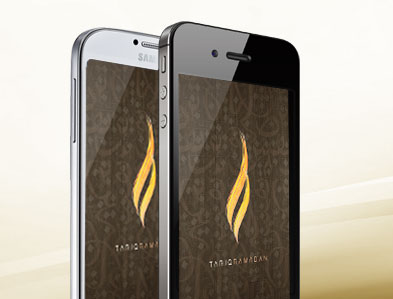Question by Sohail Abbas:
Assalam-u-alaikum wrwb,
Dear Brother Tariq,
My question pertains to the recent cartoon controversy. There has been a lot of what we might call ‘reactions’ from all sides, and not really any wisdom. The media finds this a great opportunity to further radicalize the Islamic viewpoint by giving more coverage to extremist positions from both within and outside Islam. How can we, as muslims in the west, further the views of the moderate majority and tell the wolrd that this is the voice of the normative Islam. People like you and Sheikh Hamza Yusuf talk and people listen but to the everyday people in the street who do not know any better, what can be done as practical steps?
wasalam
Sohail Abbas
Answer from Tariq Ramadan:
Salam ‘alaykum,
I agree with you and what we have seen in the streets is a revelation of the state of affairs within the Muslim communities and societies. We need national movements of popular education, we need to work at the grassroots level. It is urgent to get rid of our victim mentality and to be able to explain our points with clarity and wisdom. The problem is not to confuse, never, between being firm as to our principles and being agressive and passionate as to their defense. Maybe we need to spead around a deeper knowledge and sens of the sirâ, the Prophet’s life and example. It is our responsibility… you may be sad about the state of affairs of our communities but we cannot let them down. We are part of them they are part of us… the true Muslim must serve her/his community in one way or another and not only to critisize it from on high or from far. May the Light help us.
It is the end of this evening dialogue. I am sorry not having been able to respond to all the questions… next time in shâ ar-Rahmân. Do not forget to tell the people you love that you love them. May the Light go along with you, protect you and love you. Your brother. SalamuLLahi ‘alaykum jamî’an
Question by Marijke:
Mr. Ramadan,
Salafi muslims do not follow a school of fiqh. Do you think it is important to base one’s thinking on a school of fiqh, or do you agree with salafis that ijtihad is sufficient? Do salafis have enought knowledge and evidence to base their opinions on?
Sincerely, Marijke
Answer from Tariq Ramadan:
The way the salafi are dealing with the different schools of law transform the – de facto – in a new school. To follow a specific school may be good and sometimes necessary. One should asks oneself : where could I find the right and consistent knowledge? Where is my heart at peace? Sometimes a school is providing you with the right answers, sometimes it is a shaykh, sometimes different ulamâ’… your sincerity, your intellect and your heart are the three unavoidable references to consult. Wa Allahu a’lam, wa a’lâ wa ahkam
Question by emine:
Dear Mr Ramadan My question is regarding some issues you have raised recently and which are points of discussion within the British media around the issue of how ‘British’ the ‘Muslim Community’ is and whether the notion of Britishness can be compatible with Islam. The main point I would like to raise is that i feel that this debate completely ignores the fact that it is very difficult to describe the so called ‘Muslim Community’ as a community in the sense that it is made up of many different ethnic groups which often have very little in common other than religion and practice Islam in different ways. I feel that the main problem is the fact that these communities are prevented by their own ethnic nationalisms in not feeling ‘British’ and this is common in most if not all diaspora communities and it should not be presented in the media as if it is something unique to Islam.
Salam ‘alaykum,
You are right in you comment. Nevertheless, speaking about The Muslim community means that we are simply speaking about men and women sharing the same religion. That’s it. It is a spiritual community, a community of faith. Now, there are other problems preventing these Muslims to get unity and true brotherhood. All the elements you are mentionning play for sure a role in these difficulties. We cannot ignore national identies, cultures of origin and even racism among Muslims. The Islamic principles could help us to solve these problems if, and only if, we accept to face up to their very existence and try to reform ourselves. We are far from this awareness. May the One help us and open our eyes.
Question by Djelal:
i have tried to find in vain a list of all of your professional articles which you have published. is there such a bibliography available somewhere in the public domain ?
Answer from Tariq Ramadan:
Salam ‘alaykum,
There are many. You have the books and unfortunately the articles are scattered in different collective books and magazines. Let us know, through the website what you are looking for and in sha Allah we will let you know or send you the articles. May Allah help us… and you
Question
Assalamo Alaikom Dr. Ramadan:
On spirituality in Islam, many new readers choose to research the field of Suffism.
Are there any good titles in English you would recommend as “sound” readings from a Muslim perspective (i.e. don’t contradict with the basic teachings of the Qur’an and Sunnah)?
And is Suffism the only path to spirituality in Islam?
Thanks, and we look forward to more articles on your site on spirituality and more frequent updates of the site In-Shaa-Allah.
All the best – Tarek
Answer from Tariq Ramadan:
Salam ‘alaykum, There are many books in Arabic and some of them are translated into English : part of Ihyâ’ ‘ulum ad-dîn, by Abû Hâmid al-Ghazalî is translated and has a mystical approach to study. Minhâj as-Salikîn and the excellent AL-Ghunya li-Tâlibi Tarîq al-Haqq (Sufficient Provision for Seekers of the Path of Truth) in six volumes translated into English by ‘Abd al-Qâdir al-Jilânî. Good books. There are many sufism and one should be cautious. Spirituality and mysticism are the heart of our religion when it is weel understood. Now, there are signs which help you to find out if the sufî circle is right, and within the teachings of Islam, or outside : are they adding acts of worship or removing? What is the exact role and status of the shaykh… helping you to be closer to God and to serve Him or to idealize him, as a guide and a teacher, and to serve him in a way which is unacceptable? There are some essential questions to ask. But remember, spirituality and mysticism is the bery essence of Islam. It is its heart… the only way the become Closer to the Most Close. Wa Allahu a’lam
Question by Nour:
hello, my name is Nour, i’m a canadian from jordanian background. Considering the fact that i dress “islamically”, i get to deal with alot of questioning and debates about islam even if i do not even mention anything. If i’m somewhere people HAVE to mention religion… I have no problem with it, i LOVE talking about religion and correcting the people’s misundersntandings of this great religion. I have listened to your lectures and i was certainly facinated with your brilliant way of thinking. I was wondering if you can advise me as to how shoudl i deal in details with questions like, what is the point of hiding your body if everyone else has what you have? being different in such a society makes people look down upon you…do u think another muslim who does not wear the Hijab is going to hell just because she is confident about how she looks and does not need to hide it? how would you feel if your husband marries another women since it is a right for him in Islam? why is it a problem if two people decided to commit fornication or become homosexual if they are not harming anyone? and you know those kinds of questions that lead to endless debates…i hope you can provide me with tips of your experience and Jazak Allah Khyer…
Nour
Answer from Tariq Ramadan:
Salam ‘alaykum dearest Nur, Lots of questions indeed. I think you have to focus on the Islamic principles and teachings and then try to find the appropriate answers to the question you raised. I wrote two books answering one by one these “often asked questions”…unfortunately it is in French. You need to find your own answers but there is a consistent and reasonnable answer for every of these questions. Our principles may not please our fellow citizens but we have the responsibility to make them be understandable. May the One help us.
Question by Nuaiman:
What you think about the kind of protest that is going on in and around the world on prohhet’s cartoon issue? Do islam support these kind of things? Has Islam to suugest any other kind of alternative and creative protest to fight modernity and its underlying logic? or as muslim what should be my protest?
Answer from Tariq Ramadan:
Salam’alaykum, I wrote from the very beginning that these demonstrations, calls for boycotts and destructions of embassies are not only excessive but against the very teachings of Islam. It was right to say that we felt insulted and that we do not like this kind of cartoons but we should not have accepted to fall into a stupid trap. Some of our sisters and brothers are unaware of what is at stake and in which way this story could have a deep and lasting negative consequence. Wa Allahu a’lam
Question by Remah:
Hi,
I was wondering what the Prophet Mohammed (p.b.u.h)would have likely done or said if these cartoons were published during his life time?.
Salam
Answer from Tariq Ramadan:
Salam ‘alaykum wa rahmatuLLahi wa barakatuhu,
It is a good question. The Prophet (PBUH) was insulted and he never answered back loosing his calm and wisdom. Once he was with Abû Bakr and they were sitting. The people of Quraysh were insulting him and he kept quite. It was too much for Abû Bakr who then reacted to the insults. The Prophet (PBUH) stood up and left. Abû Bakr followed him and asked him if he was angry with him. The Prophet (PBUH) told him : While you were silent an Angel was responding to these people, the very moment you got angry and lose your temper the Devil was with us and a Prophet cannot stay where the Devil is present. This is a deep teaching… The Devil is the friend of our angers even when we react in the name of our religion. Wa Allahu a’lam

![The heat – Arab Spring 5 years on [08/02/2016]](https://tariqramadan.com/english/wp-content/uploads/sites/9/2016/02/the-heat-arab-spring-5-years-on.jpg)







Qestion by Nsimba
Salam Alaykoum,
I write to you to ask you for an advice. When I take a good decision I never go on until the end. I would like to raise my spirituality. Some people say that I’am a good musilim but in my mind I feel that I don’t do enough. An another problem I have, I easily get angry when children do noisies, I would like to know how to keep my quiet.
yours regards,